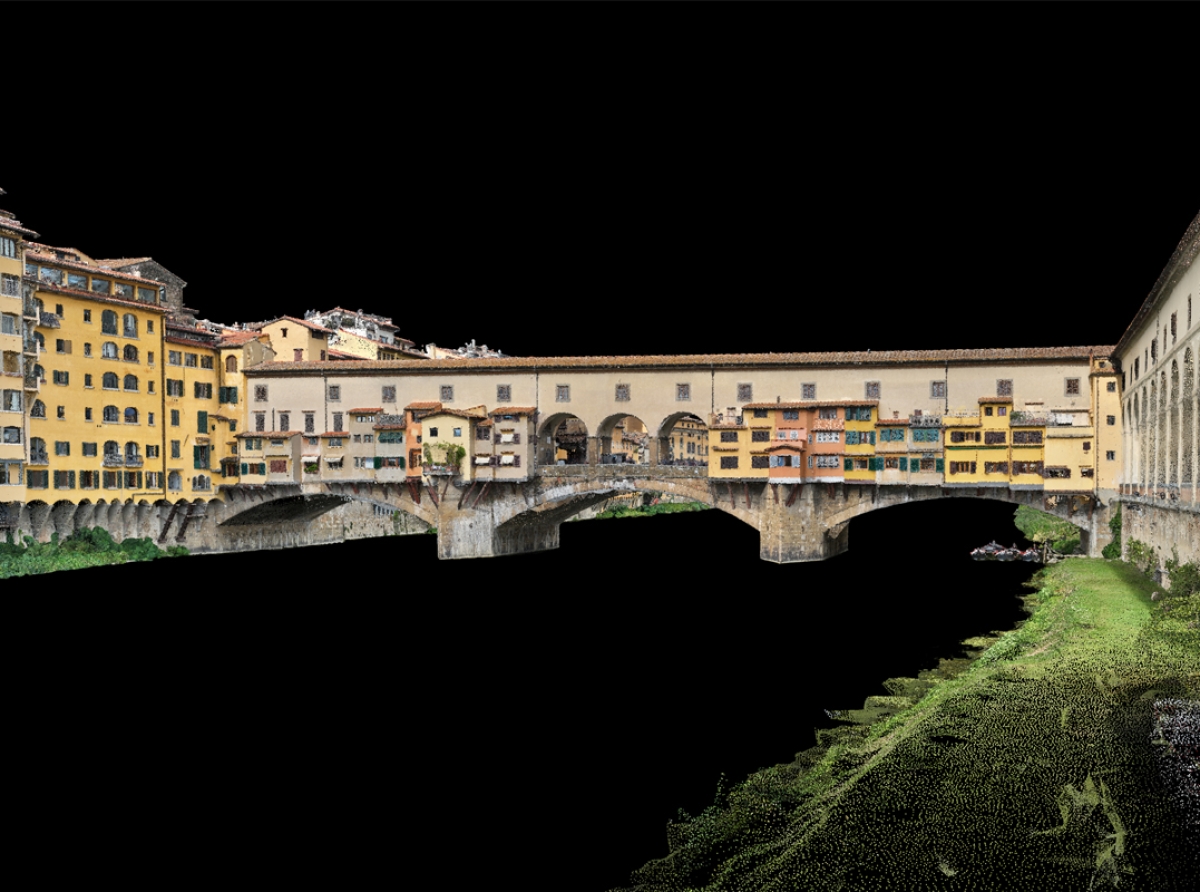CHEDAR is a new research and higher education centre dedicated to the safeguarding and valorisation of wider Mediterranean heritage. It develops digital strategies to address risks and strengthen resilience. It activates a network of experts and institutions to foster inclusive projects, transfer skills, and promote innovation.
PRESENTATION OF THE PROJECT CHEDAR CULTURAL HERITAGE DIGITALIZATION AND RECONSTRUCTION
MEDITERRANEAN HERITAGE IN THE DIGITAL ERA: FACING RISKS ADN BUILDING SUSTAINABILITY
The CHEDAR project will be presented on August 30th at the Italian Pavilion during EXPO 2025 in Osaka, Japan. This event is both a study day and an outreach initiative - an open, multidisciplinary platform that brings together documentation, diagnostics, conservation, and technological innovation to develop advanced strategies for protecting and enhancing Mediterranean cultural heritage.
Special emphasis is placed on the management of both natural and human-induced risks, such as climate change, environmental disasters, and conflicts, that endanger cultural heritage. In this context, digitalization and reproduction are not only tools for preservation but also key enablers of cultural, environmental, and social sustainability.
Through digital technologies and inclusive practices, CHEDAR strengthens the resilience of heritage and local communities by promoting participatory approaches, intergenerational transmission of memory, and equitable access aligned with the UN 2030 Sustainable Development Goals.
The event opens with an institutional session introducing the CHEDAR project—funded by the Ministry of University and Research (MUR) and coordinated by the University of Florence. Participants include national and international research institutions, art academies, universities, and stakeholders in cultural policy and heritage protection.
Morning Program
10:00 – 11:30 | Official Presentation & Institutional Contributions
From Expo 2020 Dubai to Expo 2030 RiYad, Paolo Glisenti, CHEDAR Strategic Advisor
Presentation of the CHEDAR Project, Grazia Tucci, CHEDAR Director – Università degli Studi di Firenze
LUISS – The Campus Project, Raffaele Marchetti, Campus Project Director – LUISS
Video Message Stefania Giannini, UNESCO Assistant Director-General for Education
Digital Technologies for Cultural Heritage Disaster Prevention, Hirofumi Ikawa, Senior Cultural Properties Specialist, Cultural
Resources Utilization Division, Agency for Cultural Affairs, Japan
(TBC), Rumi Okazaki, Shibaura Institute of Technology, Tokyo
Envisioning Cultural Heritage Digitization Through Global Collaboration, Ona Vileikis, Head of Documentation Unit, Department of Culture and Tourism – Abu Dhabi; Secretary-General, CIPA Heritage Documentation
Thematic Panels
Two thematic panels explore, on one hand, the use of 3D data and the creative industries to improve accessibility and cultural engagement, and on the other hand, the application of digital twins, diagnostics, and restoration technologies to mitigate environmental impacts on vulnerable sites.
11:30 – 12:30 | Thematic Panel 1
Reimagining Heritage – Reproduction, Creativity and Accessibility in Museums and Cultural Tourism
This panel explores how 3D digital data, acquired through advanced geomatic techniques, can serve as a foundation for creative industries. By transforming accurate heritage documentation into immersive experiences, new pathways open for accessibility, education, and sustainable cultural tourism. Experts from academia, research, and media production discuss innovative models to enhance the value and engagement of heritage assets.
12:30 – 13:30 | Thematic Panel 2
(Un)Faithful Twins – Culture Between Memory and Simulation
This panel investigates how digital twins, supported by diagnostic analyses and mobile laboratories, can be used to inform restoration and risk mitigation strategies for cultural heritage. With climate change increasingly threatening tangible heritage, the conversation will focus on how digital simulations can preserve memory, while supporting real-world interventions.
Afternoon Workshops
Five interactive workshops will offer hands-on, immersive experiences for the public, including XR explorations of underwater and cave heritage, creative labs for children, and live 3D scanning and printing demonstrations.
14:30 – 15:30 | Workshop parallel sessions
Workshop 1: Heritage Explorers – A Playful Journey into Mediterranean Culture
Workshop 2: Capture It, Print It – Making Cultural Heritage Tangible
15:30 – 17:00 | Workshop parallel sessions
Workshop 3: Brancacci Point of View – Immersive Encounters with Italian Masterpieces
Workshop 4: Digitally Reviving the Grotta degli Animali: Where Immersion Meets Monitoring
Workshop 5: Mediterranean Depths – A Submerged World of Culture
About CHEDAR
CHEDAR project is coordinated by the University of Florence in partnership with National Research Council (CNR) – Institute of Heritage Science (ISPC), Central Institute for Restoration (ICR), ISIA Florence (Higher Institute for Artistic Industries), Academy of Fine Arts of Carrara, University of Tuscia, University of Cassino and Southern Lazio, Roma Tre University, Campus Bio-Medico University of Rome, Sapienza University of Rome. The project is funded by the Italian Ministry of University and Research (MUR) and supported by CIPA Heritage Documentation, ICOMOS Italia, and PNRR CHANGES Spoke 7.


